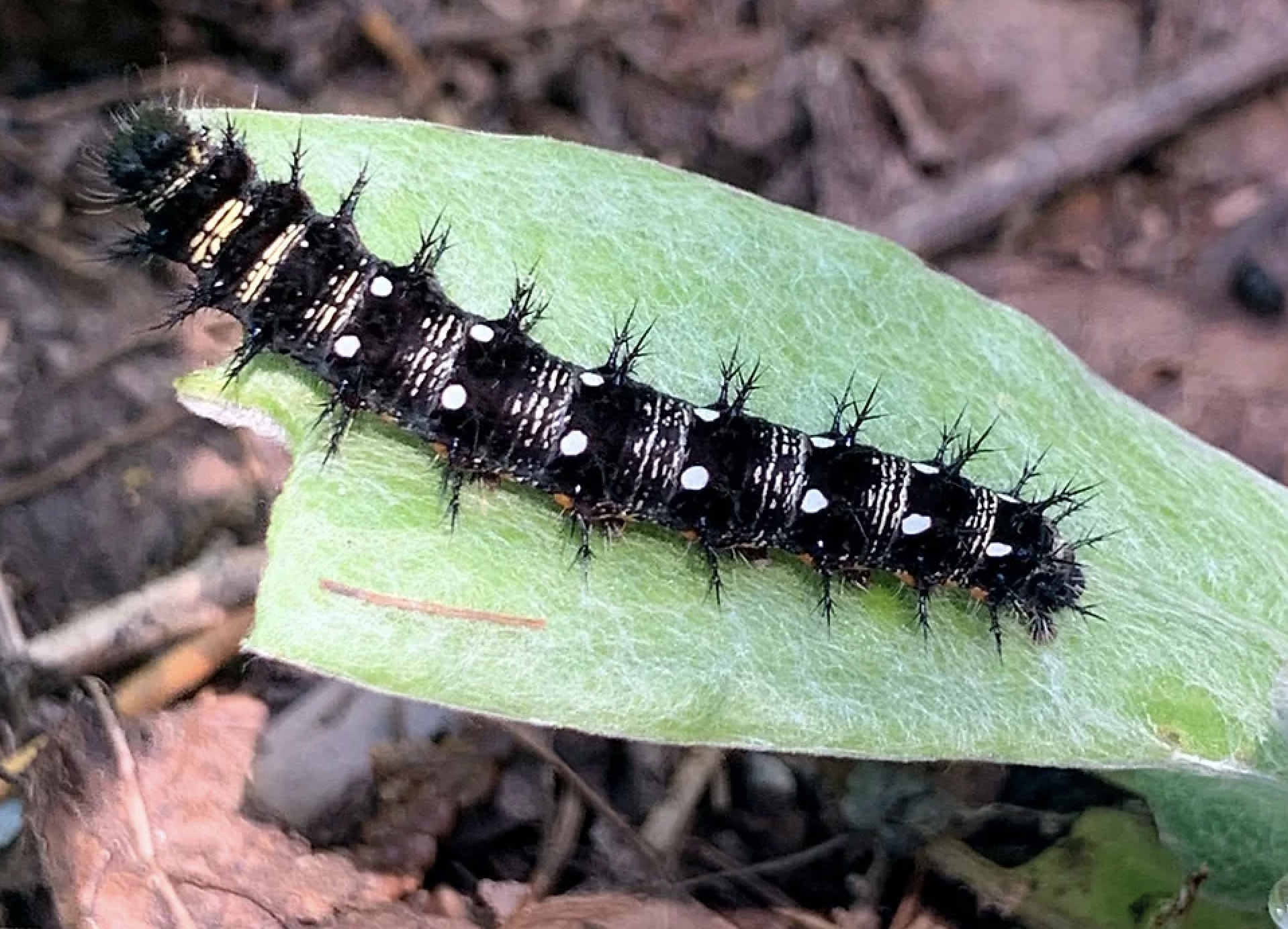Butterfly Gardens: How to Support Every Stage of Their Lifecycle with New Jersey Native Plants
Butterflies bring beauty and movement to the garden, but their presence isn’t just about aesthetics—they are vital pollinators and an integral part of the ecosystem. If you want to attract butterflies, it’s essential to provide for their entire lifecycle, from egg to caterpillar to chrysalis to adult butterfly. This means including host plants for their larvae, nectar-rich flowers for adults, and sheltering plants for pupation.
Why Native Plants Matter
Native plants have evolved alongside local butterfly species, making them the best choice for providing food and habitat. Unlike many ornamental plants, which may lack the necessary nutrients or leaf structure, native species meet the specific needs of butterflies at every stage of their lives. In Morris County, New Jersey, native plants play an essential role in supporting butterfly populations and maintaining local biodiversity.
Essential Host Plants and Their Butterfly Species
To ensure butterflies can reproduce in your garden, you need host plants—specific plants where butterflies lay their eggs and on which their caterpillars feed. Here are some native host plants and the butterflies they support:
Milkweed (Asclepias spp.) – Monarch Butterfly (Danaus plexippus)
Wild Senna (Senna hebecarpa, Senna marilandica) – Cloudless Sulphur (Phoebis sennae)
Pussytoes (Antennaria spp.) and Pearly Everlasting (Anaphalis margaritacea) – American Lady (Vanessa virginiensis)
Hackberry Tree (Celtis occidentalis) – Hackberry Emperor (Asterocampa celtis), Tawny Emperor (Asterocampa clyton)
Passionflower (Passiflora incarnata) – Variegated Fritillary (Euptoieta claudia)
Spicebush (Lindera benzoin) – Spicebush Swallowtail (Papilio troilus)
Willows (Salix spp.) – Mourning Cloak (Nymphalis antiopa), Viceroy (Limenitis archippus)
Golden Alexander (Zizia aurea) – Black Swallowtail (Papilio polyxenes)
Tulip Tree (Liriodendron tulipifera) and Wild Cherry (Prunus serotina) – Eastern Tiger Swallowtail (Papilio glaucus)
Nectar Plants for Adult Butterflies
While host plants are crucial for reproduction, nectar-rich flowers sustain adult butterflies. Choose plants with staggered bloom times to provide a continuous food source:
Spring: Eastern Redbud (Cercis canadensis), Wild Geranium (Geranium maculatum)
Summer: Purple Coneflower (Echinacea purpurea), Bee Balm (Monarda fistulosa), Butterfly Weed (Asclepias tuberosa)
Fall: New England Aster (Symphyotrichum novae-angliae), Goldenrod (Solidago spp.), Ironweed (Vernonia spp.)
Creating a Butterfly-Friendly Habitat in Denville and Beyond
To maximize your garden’s appeal to butterflies:
Select plants from growers that don’t use neonics - like My Backyard at Nectars in Titusville!
Plant in clusters – Butterflies prefer large groupings of flowers over isolated plants.
Provide a sunny spot – Butterflies need warmth to be active.
Avoid pesticides – Even organic treatments can harm caterpillars.
Include shelter – Shrubs, tall grasses, and leaf litter provide protection for pupating butterflies and overwintering species.
Offer water – A shallow dish with wet sand or mud provides essential minerals.
The Bigger Picture
By planting native host and nectar plants, you’re doing more than just inviting butterflies into your yard—you’re creating a haven that supports pollinators, birds, and other beneficial wildlife. Every plant you choose has the potential to sustain not just an individual butterfly but an entire ecosystem.
Whether you’re gardening in Denville, Morris County, or anywhere in New Jersey, start small or go big, but whatever you do, plant with purpose. Your garden will be richer in life, color, and movement—and so will the world around you.





